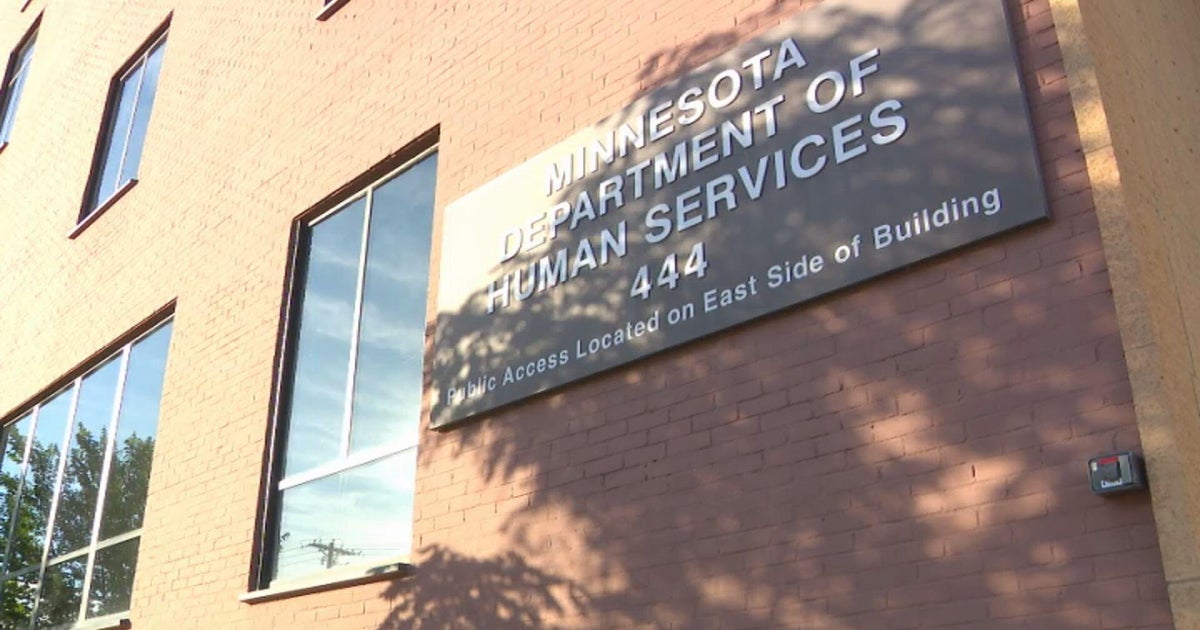Transcript: Chris Krebs on "Face the Nation" on July 18, 2021
The following is a transcript of an interview with former CISA director Chris Krebs that aired on Sunday, July 18, 2021, on "Face the Nation."
JOHN DICKERSON: Last week, the Biden administration outlined several steps aimed at fighting back against both cyber attacks and misinformation campaigns. Chris Krebs is the former director of the Cybersecurity and Infrastructure Security Agency and now founding partner of Krebs Stamos Group. And he joins us now in person as a real live human here. Nice to see you, Chris. Thank you for being here. Let's start with misinformation. The- the- the surgeon general put his finger on misinformation in terms of blocking people, getting to vaccines. You fought a lot of misinformation with respect to elections. Do you see similarities between those two?
FORMER CISA DIRECTOR CHRIS KREBS: Absolutely. And it was a- it was a remarkable week in terms of pronouncements both from some of the social media platforms, Facebook as well as the administration. What- what we are seeing here, though, is an ecosystem of information purveyors. Some of this is politically motivated. Some of it is the anti-vax community. Some of it is profiteering. And I tend to believe that there's a lot of that going on here.--
JOHN DICKRSON: Profiteering, people selling--
KREBS: Yeah. And there was a- there was a Washington Post piece the other day about the FTC, a former FTC commissioner, Terrell McSweeny, that asked the FTC to investigate some of this, some of the profiteering off of the pandemic. And I think that is an incredibly important development in how we're going to move beyond not just the pandemic related disinformation, but also some of the election related disinformation.
JOHN DICKERSON: And is this different? Is there any foreign meddling in this kind of disinformation? We know about people passing neighbors who are passing information that isn't square, but is- are there any foreign entities involved?
KREBS: I think yes, there are. And there tends to be a set of actors. There's state actors, intelligence agents- agencies. Again, the profiteers, you have conspiracy theorists, anti-vacciners. You have political activists as well in what happens, whether it's elections, whether it's COVID, whether it's technology issues. You tend to have an overlap of these different actors. And when you talk about foreign actors and Russian disinformation specialists in particular, they don't actually have to do a whole lot because we've done so much here domestically to ourselves. But they get the seeds of division that they then amplify, they drive more activity. And ultimately what they're looking to do is undermine our confidence in the United States of America ourselves.
JOHN DICKERSON: We're all ready to fight and they just drop in the thing that creates a new round of fighting. Let me ask you about Facebook. They responded to the administration and said 85% of our users are interested in vaccines, basically saying the administration is wrong. But the Center for Countering Digital Hate, which the administration pointed to, said that they were basically about 12 Facebook accounts that are spreading this disinformation. Help us think through what the right way to think about this is.
KREBS: Unfortunately, both can be true at the same time. So, yes, Facebook and other social media platforms can provide helpful information on the facts behind the vaccine. And the same thing happened in the elections last year. They had a banner and a trust page. But at the same time, there are those that can use those platforms for their own benefits to continue to push disinformation. Now, what has happened over the last several months is that some of those that the- the Dirty Dozen or whatever they're calling it, some of those have been de platformed. But the problem is particularly for vaccine disinformation, it is metastasized and it is now, you mentioned it earlier about the top down and the bottom up, the grassroots piece. It is now so pervasive that it exists just naturally within the ecosystem on Facebook and elsewhere. And that's where we need the platform to be more transparent in how their algorithms work, how engagement works, so that outside security experts and researchers can dig in and hold them accountable, that us as consumers of these platforms can hold them accountable and demand better.
JOHN DICKERSON: So do you have 15 seconds left? You mean the structure of Facebook is- is raising up just regular people who are spreading information?
KREBS:Unfortunately, fear sells and those clicks drive more engagement.
JOHN DICKERSON: All right, Chris, stay right there, Chris. We'll be right back. We need to take a short break, but stay with us.
(COMMERCIAL BREAK)
JOHN DICKERSON: Welcome back to FACE THE NATION, more with former head of the Cyber Security and Infrastructure Security Agency, Chris Krebs. Chris, REvil, this is the Russian based operation that was responsible for the Colonial Pipeline. What happened to them?
KREBS: It's not clear. There are three possibilities. One is that-that the President meeting with Putin had an effect and the law enforcement or intelligence services in Russia told him to knock it off. That's certainly an option. The second is that some sort of U.S. or allied operation put enough kind of sand in their gears where they decided to pack it up. The third is the theory that Dmitri Alperovitch, formerly of Crowdstrike, now of Silverado Policy Accelerator, is- has advanced, that it's hot in Moscow right now. And these guys just made a lot of money. So maybe they're hanging it up for a couple of months, going down to the Black Sea. You know, they just picked up some territory there in east eastern Ukraine. So maybe hanging out down there.
JOHN DICKERSON: So on the first two theories, the first would be that the Russians are basically proving Biden's case, which is you have control over these people and you can make them stop, which would have implications, wouldn't it, for the for the just the general, because the Russians are involved in a lot of bad activities.
[00:01:17]
CHRIS KREBS: Absolutely. And, you know, that would tell them-tell me that they as you said, they have some authority and some ability to compel action. But that doesn't mean that these folks are just going to go away. They can go to other safe havens. Belarus could be an option where they just move up, pack up operations and go elsewhere. That may provide them a little bit more of a, you know, a comforting environment.
JOHN DICKERSON: Now, let's imagine they go for whichever of the three reasons it is, how easily can they be replaced by an equally creative, malevolent force?
CHRIS KREBS: I would- what I would expect to see this team, the REVIL team who was previously known as Gandcrab. I would expect that they would come back and rebrand in the fall, probably some new name, some rebrand, and that gives them the advantage of staying off the radar of law enforcement. And if the administration starts sanctioning some of these ransomware crews, which they've done in the past, that, you know, by changing names, it-it makes law enforcement in the Treasury Department play catch up.
JOHN DICKERSON: Speaking of playing catch up, so there is now somebody in your old jobs. The administration has a lot of players on the field. Give me your assessment of the Biden administration's cybersecurity team, and I'll throw in there something Garrett Graff in Wired wrote about, which is maybe they got so many people on the field, it's going to be hard for everybody to stay coordinated.
CHRIS KREBS: So they have an impressive team. Jen Easterly just came in, was confirmed earlier this week. They also have Chris Inglis, who's the new first national cyber director. You have Anne Neuberger in the White House. You have Rob Joyce at the National Security Agency. It's a it's a it's almost an embarrassment of riches from a capability perspective and kind of going from the last administration, which was, you know, a much smaller set of cyber experts. There's going to be some adjustments. But CISA, my old agency now Jen Easterly's agency, is the front door for private sector engagement with the US government. And I really look forward to her in that team continuing to move the ball forward on improving cyber defenses here domestically.
JOHN DICKERSON: All right, Chris Krebs''s we're out of time. We're going to be talking to you a lot more about this issue. So we really appreciate it. Thank you.



